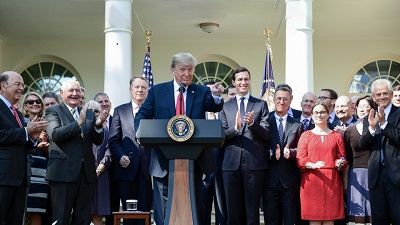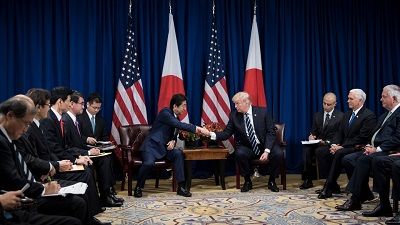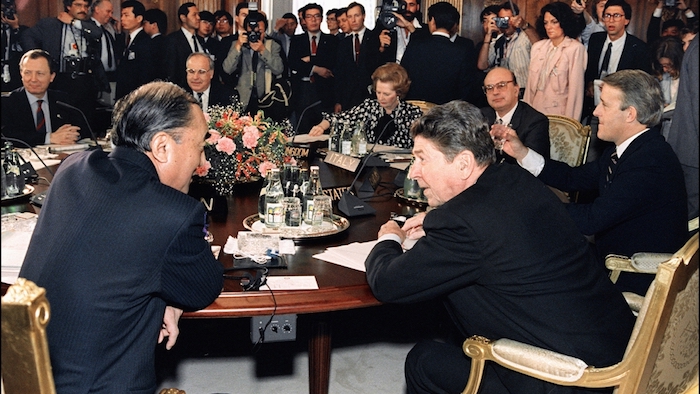Tag: USTR

Crash Course: Trade Policy with the Trade Guys
Are you new to international trade, or looking for a refresher course on American trade policy? CSIS Executive Education is pleased to offer "Crash Course," a one-day seminar on the fundamentals of U.S. international trade policy and politics.
Closing In
In this episode, the US and China finally appear to be closing out their trade deal. Andrew and the Trade Guys discuss the pros and cons of the agreement, and what’s happened after a year of steel and aluminum tariffs.
The Dynamics of Trade with a Democratic House Majority
In this episode, the Trade Guys record in front of a live audience of members of the World Affairs Councils of America. On the agenda was the midterm elections and how the new Democratic majority in the House might affect the dynamics of trade policy. They also discussed tariffs, the USMCA, and more.

WTO Reform: The Beginning of the End or the End of the Beginning?
Members of the World Trade Organization (WTO) have become increasingly frustrated with all three of its main functions: monitoring member states’ trade policies, providing a forum to negotiate new trade agreements, and arbitrating trade disputes. In recent months, this has triggered an effort to reform the WTO—what U.S. ambassador to the WTO Dennis Shea termed “the Autumn of WTO reform.”

New Trump Administration’s Trade Negotiations: What’s Next?
The Trump administration has formally notified Congress that it intends to negotiate trade agreements with the European Union, United Kingdom, and Japan. The Scholl Chair explores what the next steps for each party are and where the negotiations could lead.

Fixing the WTO
CSIS was privileged last week to host the U.S. ambassador to the World Trade Organization (WTO), Dennis Shea, for a public conversation. Ambassador Shea did not make front page news, no doubt much to his relief. No surprise there. Even in the best of circumstances, the WTO rarely makes the front page, and we are hardly in the best of circumstances. He did, however, do an excellent job of both defending and explaining the administration's policy toward the organization.
Bilats, Tensions, and an NFL Victory
In this episode, the Trade Guys cover a lot of ground. Japan is following EU’s playbook by agreeing to bilateral trade talks with the United States. Trade tensions with China may begin to spill over into other areas of bilateral tension. The trade deficit widens, and the NFL scores an USMCA win. Hosted by H. Andrew Schwartz, and produced by Yumi Araki and Jack Caporal at the Center for Strategic and International Studies in Washington.
Doing the USMCA
The Trade Guys unpack the deal to replace NAFTA: the U.S.-Mexico-Canada Agreement. What's in it, what does it say about the Trump administration's trade policy, and what's next for the new deal.

Exit NAFTA, Enter USMCA
It is somewhat comforting to see that one of the worst things you can say about U.S.-Mexico-Canada Agreement (USMCA) is that the new trade agreement replaces a term that everyone knows and can say with an unpronounceable acronym. How do you say USMCA? Even NAFTA 2.0 would sound better. Hard to pronounce though it may be, if that’s the worst one can say about the agreement, then the business communities in all three countries dodged a serious bullet.

U.S.-Japan Trade Talks: What Could They Yield?
After roughly a year and a half of overtures from the Trump administration, Japanese Prime Minister Shinzo Abe has agreed to enter into talks for a “United States-Japan Trade Agreement on goods,” and other key areas. The joint statement announcing the negotiations was released on Sept. 26 on the sidelines of the United Nations General Assembly after a bilateral meeting between President Trump and Prime Minister Shinzo Abe. Questions remain, however, about the scope of the negotiations, the resolution of U.S. national security tariffs on steel, aluminum and automobiles, and what either side may be willing to give to the other to reach a deal.

Lost in the 1980s on Trade
Robert Lighthizer, the U.S. Trade Representative, is dusting off his playbook from the 80s. The trade policy veteran, who served as a deputy in the Reagan administration, is seeking negotiated steel and aluminum quotas and has made his skepticism of the World Trade Organization no secret.